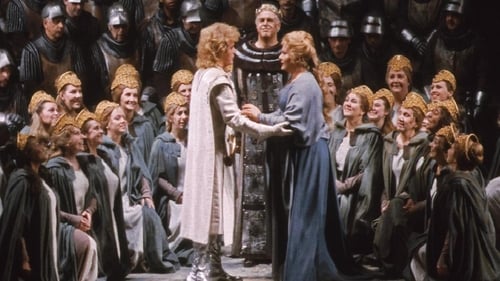Leonie Rysanek
출생 : 1926-11-14, Wien, Austria
사망 : 1998-03-07
약력
Leopoldine Rysanek (14 November 1926 – 7 March 1998) was an Austrian dramatic soprano.
Rysanek was born in Vienna and made her operatic debut in 1949 in Innsbruck. In 1951 the Bayreuth Festival reopened and the new leader Wieland Wagner asked her to sing Sieglinde in Die Walküre. He was convinced that her unique, young and beautiful voice, combined with her rare acting abilities, would create a sensation. She became a star overnight, and the role of Sieglinde followed her for the rest of her career. Her final performance was at the Salzburg Festival in August 1996, as Klytämnestra in Elektra by Richard Strauss.
Her Metropolitan Opera debut came in 1959 as Lady Macbeth in Verdi's Macbeth, replacing Maria Callas who had been "fired" from the production. Over her lengthy career, she sang 299 performances of 24 roles there. She starred in productions of Verdi's Nabucco, in the title role of Ariadne auf Naxos by Richard Strauss, the Empress in Die Frau ohne Schatten, also by Strauss, and Janáček's Káťa Kabanová. She made her farewell there as the Countess in Tchaikovsky's The Queen of Spades in January 1996.
She was appointed curator of the Vienna Festival a few months after her retirement, a post she held until her death in Vienna at age 71 (she had been diagnosed with bone cancer during her last Met performances). Two days later, a Metropolitan Opera production of Wagner's Lohengrin with Ben Heppner in the title role was dedicated to her memory. In that opera, she had sung the role of Ortrud in the 1985–86 production.
Leonie Rysanek's voice is regarded as in-line with the spinto and dramatic soprano categories. Although her voice fell in the upper end of the jugendlich-dramatisch and dramatischer Sopran categories in the German repertoire, it was exclusively dramatic by Italian operatic standards. Her endurance in the high tessitura of Strauss' operas is widely praised.
She is known for singing the music of Richard Strauss. She was especially praised as the Empress (Kaiserin) in Die Frau ohne Schatten, the title role in Salome, the Marschallin in Der Rosenkavalier and Chrysothemis in Elektra. She occasionally sang Ariadne/Prima Donna in Ariadne auf Naxos and female leads in Strauss operas rarely staged (Die ägyptische Helena and Die Liebe der Danae). However, cautious of playing out of her league, she didn't tackle Salome until 1972 when she was age 46, although she kept the role of Sieglinde in her active repertoire from her early 20s until age 62. She avoided offers to sing Isolde in Wagner's Tristan und Isolde despite speculation that the role would be perfect for her. She sang Brünnhilde in Die Walküre in 1950 in Innsbruck but did not return to this role. She stated in interviews that her great respect for her colleague Birgit Nilsson was a factor in her avoidance of that soprano's signature roles. One of her performances in Die Walküre took place in the same week as her appearance as Gilda in Rigoletto.
Rysanek sang the title role of Tosca often, and Turandot a few times. She also sang Leonore in Beethoven's Fidelio. ...
Source: Article "Leonie Rysanek" from Wikipedia in English, licensed under CC-BY-SA 3.0.




